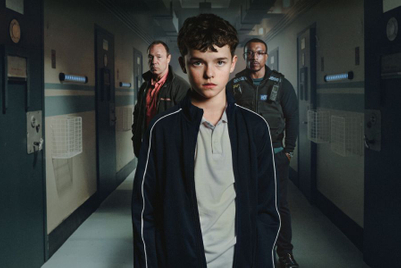
Netflix has revealed a new capability for advertisers to target ads around its top 10 performing titles each day as it seeks to scale its burgeoning ad business with both unique solutions and standard tools.
Co-CEO Greg Peters said during the company’s second-quarter earnings call the new product addresses its “first priority” for its ad business, which is scale.
“We know that reach is one of the dominant considerations that advertisers have when they think about where to go to spend their dollars,” he said. “We want to be in that top list.”
Its other priority is rolling out “well trodden” features that advertisers expect, such as verification, measurement and basic targeting capabilities, and growing its sales team, Peters said.
Netflix said membership to its $6.99 per month ad-supported plan “nearly doubled” since the first quarter, though it added that this is from a small base and ad revenue is not yet material.
The streaming service hosted its first upfront pitch to advertisers in May, when it revealed that its ad-supported tier, which launched last November, had surpassed 5 million monthly active users. Peters said Netflix witnessed “good demand” from the upfront and that the company has benefited from having a scarcity of inventory amid a soft ad market.
“Our job really now is to add as quickly as we can advertiser features that meet their needs so that we can make our offering more attractive as we scale that inventory up,” he added.
Netflix’s decision to host an upfront — an event traditionally held by linear TV networks — chimes with its desire to pull spend from linear, brand-focused TV advertising.
“That's the sweet spot that we can speak to right now,” said Peters, adding that it anticipates pulling both linear and digital dollars “over time.”
Password sharing clamp down drives subscriber, revenue growth
Netflix has a strong user growth story to fuel its ad ambitions.
The crackdown on password sharing that it initiated in May helped drive 5.9 million new subscribers for Netflix in the second quarter, as it continued to turn around its fortunes following a tricky 2022.
Subscribers grew 8% from a year ago to reach 238 million, with additions in every region.
The so-called paid sharing initiative asks anyone using a Netflix log-in for more than 31 days at a different location to open their own account or pay $7.99 a month to be added to the main account.
Netflix rolled it out to 80% of its revenue base in Q2 and said it would begin alerting users in most of its remaining markets on Wednesday.
Chief financial officer Spencer Neumann said the clamp down on account borrowers is Netflix’s “primary revenue accelerator” this year with the impact expected to build over several quarters.
That’s because not all account sharers convert immediately, Peters said: “There's some borrowers who are using the service every day, and those folks are very likely to transfer to their own accounts very soon. And then some folks are less engaged, and it's going to take us a little bit longer to convince them to move over with great stories, great TV shows and films.”
Netflix’s revenue grew 2.7% in Q2 to $8.19 billion, while its profit increased by 3.3% to $1.49 billion.
Slashing its basic tier
Netflix also confirmed earlier reports that it is dropping its cheapest ad-free plan in the U.S. and U.K., having already sunset the subscription tier in Canada in June.
The $9.99 per month basic plan is no longer available for new or returning members in the two major markets, though existing subscribers can keep it.
Subscribers in those markets will have to choose between downgrading to its $6.99 per month ad-supported tier or upgrading to its $15.49 per month standard plan or $19.99 premium plan.
Peters said Netflix is removing the basic tier on a market-by-market basis so it can understand the impact.
He added that it forms part of Netflix’s goal to give consumers access across a range of price points while optimizing the business’ long-term revenue.
‘We need to get this strike to a conclusion’
Netflix co-CEO Ted Sarandos addressed the escalating strikes that have caused much of Hollywood and TV production to grind to a halt during the investor call.
The actors' union SAG-AFTRA last week joined strikes kicked off by the Writers Guild of America (WGA) in May over contract negotiations with producers.
Sarandos said the strikes are “not an outcome that we wanted,” adding that it has “there’s a lot of work to do” in addressing “a handful of complicated issues.”
“We're super committed to get into an agreement as soon as possible — one that's equitable and one that enables the industry and everybody in it to move forward into the future,” he said.
Netflix raised its free cash flow forecast to $5 billion from an earlier estimate of $3.5 billion as it said it expects to spend less on content in 2023 than originally anticipated due to the ongoing strikes.




.jpg&h=334&w=500&q=100&v=20250320&c=1)
.jpg&h=334&w=500&q=100&v=20250320&c=1)


+(1).jpg&h=334&w=500&q=100&v=20250320&c=1)

.jpg&h=334&w=500&q=100&v=20250320&c=1)

.jpg&h=268&w=401&q=100&v=20250320&c=1)
.jpg&h=268&w=401&q=100&v=20250320&c=1)





